The surprising ruling comes in response to a request by the journalists, Alan Morison and Chutima Sidasathian, to have a special fund at the ministry cover the cost of their bail.
''We now have doubts that we can get a fair trial in Thailand if we have already been declared guilty by the Justice Ministry,'' Morison, who edits Phuketwan, said today.
''We were almost as shocked to hear what the Justice Ministry had to say as we were to hear that we were being sued by the Royal Thai Navy in the first place.''
In a case that has been condemned by rights groups, including the United Nations, the journalists are being sued for republishing a 41-word paragraph quoting directly from Reuters news agency. The paragraph formed part of a series of articles on the Rohingya boatpeople that won the Pulitzer for the news agency.
While the English-language version of the paragraph does not mention the Royal Thai Navy, a Thai-language translation used by Phuket police in the prosecution specifically mentions the Navy three times.
''We now have an indication directly from the Justice Ministry that we stand little chance of winning this case - even though we are not the authors of the paragraph and the 'evidence' has been completely distorted.''
The ruling against the application for bail was made in July but a copy of the judgement by the Rights and Liberties Protection Department, Justice Ministry, only reached the journalists this week.
Translated into English, the judgement says in part: ''The information . . . is false and untrue. The journalists must be correct and recheck their information before publishing the story to make sure there is no danger to others. The reputation of the Royal Thai Navy was damaged and made people look down on the Navy. On the evidence we have, we believe Morison and Khun Chutima did the wrong thing.''
The two journalists say they were aghast to read this judgement from the Justice Ministry when their trial in Phuket Provincial Court is not even scheduled to hear evidence until mid-July next year.
''I had expected to be treated fairly in Thailand and to have Thai justice find us innocent,'' Morison said. ''This is an indication there is no hope of that happening here.''
Khun Chutima, a reporter at Phuketwan, said: ''This letter is from the Rights and Liberties Protection Department, yet they clearly have no interest in protecting my rights and liberties. This is totally unfair.
''What makes the department able to judge us, before our trial? I am deeply disappointed to see the way my country's justice system fails to operate fairly.''
Earlier this year, the Phuket Damrungtam (Complaints) Office declined to ask investigating officers at Vichit Police Station why they had pursued the case against the journalists without first questioning the Navy officer who lodged the complaint.
Morison and Khun Chutima face lengthy jail terms as a maximum sentence if found guilty of criminal defamation and a Computer Crimes Act charge.
Morison is an Australian citizen. His passport has been seized, making him a prisoner in Thailand. He is unable to visit his ageing father, who turns 91 later this month.
Australian authorities and the country's Bangkok ambassador have declined to ask for his passport to be returned, even though it is the property of the Australian government.
The British government recently succeeded in having the passport of one of its citizens, Andy Hall, returned. He faces similar charges to the journalists, but brought by a pineapple processor.
Morison and Khun Chutima have vowed to continue reporting the saga of the Rohingya and other boatpeople who are being abused, raped and sometimes killed in Thailand's secret trafficking camps.
The journalists' coverage has won awards and international acclaim.
The Australian Government
Former Ambassador to Thailand, James Wise: ''Normally, we take up issues like yours with our host government only after the person affected asks us to do so (especially when the case already has a high profile and we can be confident that the host government is aware of it). We would not want to cut across your own plans for managing the way you want to respond to the allegations against you - because, ultimately, how you manage your affairs is your business, not ours.''
United Nations
''Criminal prosecution for defamation has a chilling effect on freedom of the press,'' said Ravina Shamdasani, the spokesperson for the Office of the High Commissioner for Human Rights. ''International standards are clear that imprisonment is never an appropriate penalty for defamation.''
Human Rights Watch
''The Thai navy's lawsuit is a reckless attempt to curtail journalists' reporting on alleged human trafficking by its officers,'' said Brad Adams, Asia director at Human Rights Watch. ''Unless the government withdraws the case, its impact will be felt far beyond those reporting on abuses against the Rohingya - and could have a choking effect on all investigative reporting in Thailand.''
Reporters Without Borders
"It is intolerable that journalists are being prosecuted for just doing their job by relaying information of general interest that had already been made public," Reporters Without Borders said. "Bringing charges under the controversial Computers Crimes Act in a defamation case is indicative of the critical state of freedom of information in Thailand and amounts to an attempt to gag the media. We support these journalists, who are facing a jail term, and we call for the immediate withdrawal of these proceedings."
Committee to Protect Journalists
''Rather than shooting the messenger, the Royal Thai Navy would be better suited launching an internal investigation into the serious allegations of abuse that have been raised,'' said Shawn Crispin, CPJ's senior Southeast Asia representative. ''This type of legal intimidation aims ultimately at discouraging media reporting on allegations of serious human rights abuses.''
Chris Lewa, director of the rights group the Arakan Project
''Thanks to the fair investigative reporting by the Phuketwan journalists, the involvement of various Thai agencies in the massive smuggling and trafficking operations of Rohingya refugees and their related miseries is no more a secret. Rights groups should unite to call on Thailand to quash these defamation charges.''
Phuketwan
''We wish the Royal Thai Navy would clear its reputation by explaining precisely what is happening to the Rohingya in the Andaman Sea and in Thailand,'' Phuketwan said in a statement released in response to the charges. ''By instead using a controversial law against us, the Navy is, we believe, acting out of character.''
Bangkok Post
The action makes the navy look like a bully, and gives the impression the admirals would like to intimidate the media. Instead of defending the navy's honor, the criminal defamation suit holds it to question. Instead of silencing the media about the story - concerning the navy's role in the mistreatment of Rohingya boatpeople - the lawsuit repeats it, to more people and at greater length.
CNN
Morison said: "The navy's action over one paragraph has created a perfect storm. If the navy proceeds with the case, the Rohingya issue is now tied up in their action against media under a controversial law."
TIME
In the meantime, calmer seas mean that even more Rohingya are expected to attempt the treacherous journey in the weeks ahead. Nothing could gladden the traffickers more.
Reuters
Barb Burg, Reuters' (former) global head of communications: ''Our story was fair and balanced and Reuters has not been accused of criminal libel.''
Bill Barnett (The Phuket Insider)
The issues which have drawn Phuketwan into this fray are profound and disturbing. There should be no need to wax over reality and respect needs to be given to those who stand up for the helpless who cannot help themselves.
Andrew Drummond (Investigative Journalist)
We should all support journalists who are doing a difficult job here
under laws which best suit a totalitarian state.
Excellence in Human Rights Reporting, Investigative Reporting awards
In 2010 the Phuketwan team shared the Society of Publishers in Asia Award for Excellence in Investigative Reporting and a second Award for Excellence in Human Rights Reporting, both with the South China Morning Post newspaper. Judges said of the Excellence in Investigative Reporting award: ''An excellent series that uncovered serious government abuses and had a material impact in correcting them. Exclusivity. Strong reporting. Hard-hitting piece with international implications.''
Of the Excellence in Human Rights Reporting award, the judges said: ''Excellent investigative work that exposed serious human rights abuses of oppressed people. Intrepid reporting of a hidden subject. This is a high-caliber series buttressed by solid on-the-ground reporting and great pictures. All militaries are challenging subjects for investigative reporters and Thailand's is no exception. The team clearly went to great lengths to get sources, break news, and provide the details that prodded the government into action.''

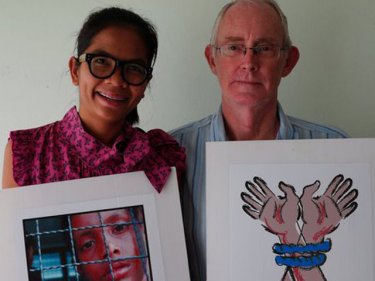

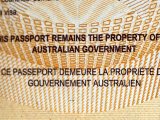


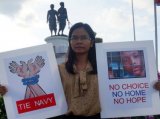
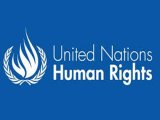

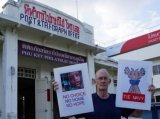

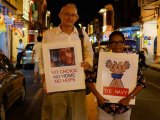





Why would you be surprised? When has there ever been real justice in Thailand? Justice is determined by your social status, surname and connections.
If you don't have them you need a well padded bank account and you'll need to pay people to 'lobby' on your behalf.
This requires various levels of grovelling and boot-licking and even then your not guaranteed justice.
Thailand is still a feudal country where patronage rules. Thais don't like their dirty laundry being aired, they prefer to stay in denial about the corrupt system. As long as people pay everything runs smoothly.
Posted by Arun Muruga on November 12, 2014 11:04